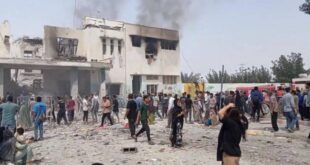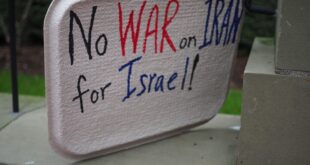 TEHRAN (FNA)- Iranian Defense Minister Mustafa Mohammad Najjar denied on Tuesday claims by western media that his country was running sleeper cells in the six Arab monarchies of the Persian Gulf.
TEHRAN (FNA)- Iranian Defense Minister Mustafa Mohammad Najjar denied on Tuesday claims by western media that his country was running sleeper cells in the six Arab monarchies of the Persian Gulf.
Najjar told a news conference in Doha that such allegations were “lies and provocative remarks from enemy Western media”.
“Iran has proved time and again that it was unfairly treated in such invented lies,” he said, answering a question by Gulf Times about claims made by a former Iranian diplomat, Adel Assadi, that Tehran “has an undercover presence in the six PGCC countries since 1979”.
Assadi was quoted as saying by a Dubai newspaper that Tehran had enough “manpower” based in PGCC countries to destabilize them.
The Iranian defense minister insisted that Iran considers the Persian Gulf monarchies as “friendly and brotherly countries.”
“The security of all regional countries is part of Iran’s security,” he said.
The PGCC is the grouping of Bahrain, Oman, Kuwait, Qatar, Saudi Arabia and the United Arab Emirates.
Najjar ruled out the possibility of an attack by the US or Israel on Iran, saying that the two countries were facing “serious problems on internal and regional levels”.
Any US or Israeli attack against Iran would put the whole region in a “stifling crisis” as Tehran would hit back “decisively”, he said.
“We believe the US or Israel would not dare an attack especially in view of the current circumstances. America is currently unable to solve its problems either in Iraq or Afghanistan, while Israel has been weakened after its humiliation in the July 2006 war in Lebanon. We do not take the threats made by the two countries seriously,” Najjar said.
“We do regard the countries of the region as friendly and brotherly states. They will never allow the US to attack Iran and create instability and unrest in the region since any war in the region would mean that the whole region would face a stifling crisis,” he said.
“Our response to any attack would be decisive. We are fully prepared to repel any attack. We are certain the countries of the region would prevent America from attacking Iran,” he said.
To a question about the frequent war games by the Iranian armed forces, Najjar, who was on an official visit to Qatar in response to an invitation made by the country’s crown prince, Sheikh Tamim bin Hamad al-Thani, said the military exercises served as a “deterrent for the Islamic Republic of Iran”.
“We believe that such exercises provide a guarantee for the stability in the Persian Gulf so that any foreign country will not dare attack us. We also want to test our new weapons and equipment and introduce new offensive tactics to enhance the capabilities of our armed forces.”
The minister stressed that his country’s atomic program was for peaceful purposes, saying that the enemies of Iran sought to pressurize Tehran by fabricating baseless claims.
“The enemies of the Islamic Republic of Iran should rather turn their attention to the Israeli nuclear arsenal and dismantle it. The US does not want any Islamic country to gain access to nuclear technology.”
Asked about the possibility of military cooperation between Iran and the PGCC countries, he said Iran did not mind holding joint war exercises with the countries of the region.
“It is time for the foreign troops to leave the region. Maintaining stability in the region should be the collective responsibility of the countries of the region themselves,” he said.
The minister also said that Iran is committed to maintain the security of the Hormuz Strait as it is a strategic passage.
 Eurasia Press & News
Eurasia Press & News



